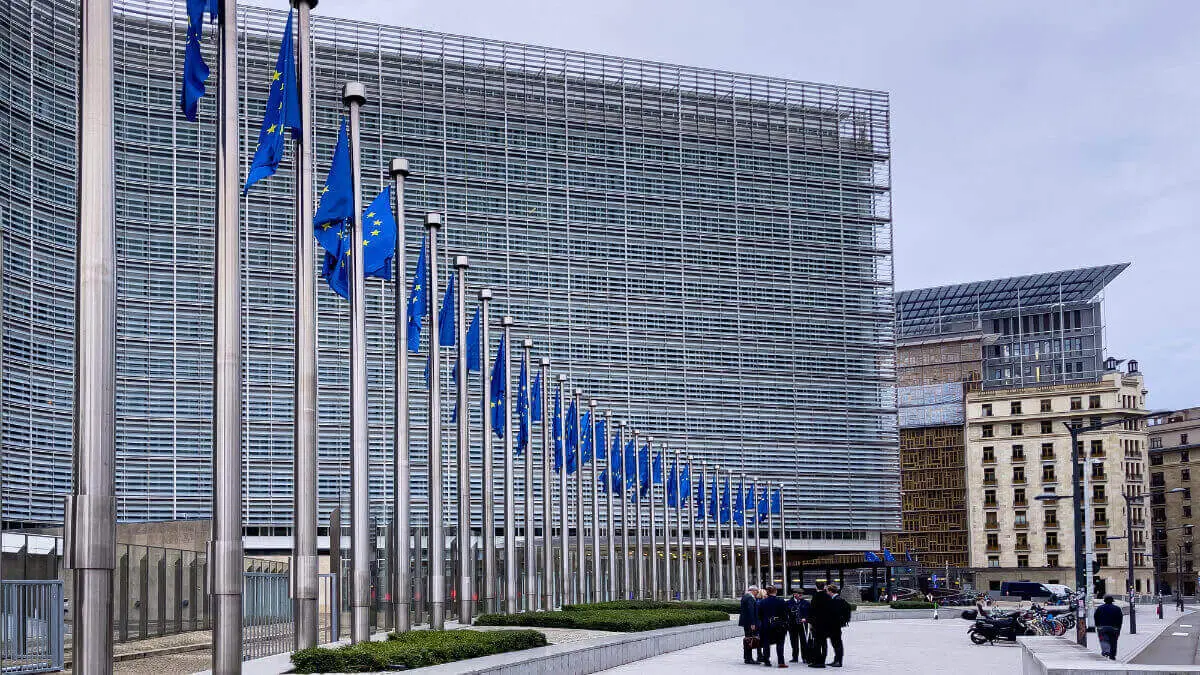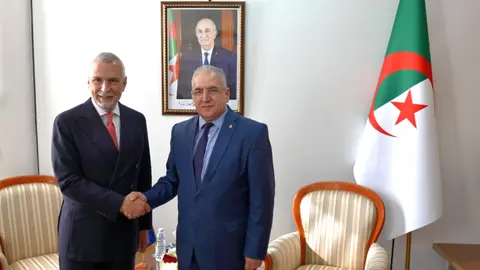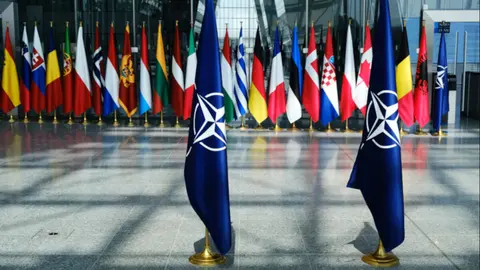Miguel Ángel Benedicto: ‘It is essential that young people realise the need for a more united Europe’

Journalist, professor and president of the Ideas and Debate Association, Miguel Ángel Benedicto, analysed the results of the seventh International Conference of the Erasmus-Youth Programme: ‘Europe as a global power’ and the fundamental role of young people on Onda Madrid's programme ‘De cara al mundo’.
He also mentioned the threat posed by the Sahel, a politically turbulent area marked by violence and the activity of criminal gangs and terrorist groups.
Mr Benedicto, are you satisfied with the results of a conference that seems ambitious on the one hand and very necessary on the other?
Yes, the truth is that we had more than 120 young people from different European countries. It is not easy to bring together 120 young people to talk about security, defence and foreign policy issues.
I believe that European public opinion is changing in some way, and that is helping us, above all, to have so many people here. We have had MEPs such as Nicolás Pascual de la Parte, who currently chairs the European Parliament's Defence Committee, and Adrián Vázquez, another MEP from the European People's Party, a young man who connects very well with young people, Hana Jalloul, from the Socialist Party, and even a NATO official who spoke to us about security and defence issues.
It is essential that young people know, understand and feel the need for the European Union, its benefits and also its commitments, obviously.
Well, I think so, with the rise of Eurosceptic and anti-European parties that we are seeing.
I think it is essential that they realise, above all, what would happen to them if they did not have Europe. Even the need we have for Europe at the moment, for a more united Europe, as we were discussing during these conferences on defence issues, where the 27 united States are stronger, especially now that Donald Trump's United States is in the state it is in, where there seems to be a distancing, where they seem to consider us an enemy, in quotation marks, and where we have no choice but to defend ourselves and, in some way, remain united.
I think young people are realising that right now. Another issue that has come up during these conferences is whether or not compulsory military service is necessary, a topic that is currently being debated among young people.
I was going to ask you if there was any issue that had been raised that had interested young people the most or that you would highlight.
Yes, I think that the issue of compulsory military service ultimately affects them. I believe that European public opinion is currently sending these messages to the various Member States, and this is an issue that also concerns them, in a way, that Russia is there on that border, with the Baltic States, with Romania, with Poland. Above all, of course, the students who have come to these countries are the most concerned.
We have also noticed a difference between those in the south, who are concerned about other countries, and those in the north, who are really affected by Putin. And there we see how young people are much more willing, in a way, to defend themselves. In contrast, in the south we have seen how they view it with much more distance and do not feel it as a threat. But the issue of compulsory military service is one of the issues that has been most successful.
Yes, here on ‘De cara al mundo’ we raised the need for a civic-military service several weeks ago, not just military, because the situation requires it, and above all, training and involvement, conviction, respect for institutions, knowledge, I think it is essential. Because, of course, the question here would be whether security and the army in Europe are not just a question of money, but a question of culture, of conscience. Would we be willing to send our children or young people to fight for peace and security in Europe, for example in Ukraine?
Well, that depends on who you ask. As I was saying, if you ask the Balts or the Poles, the answer is very different from if you ask the Spanish, French or Germans, who are not so sure. Well, they are not so sure; 98% do not want to go.
On the other hand, those who are close to Russia would obviously be willing to defend Europe against Putin. But it all depends on where, because unfortunately the threats are not yet shared. Strategic cultures in Europe, which is another of the conclusions we have drawn, are still very different.
I believe that a lot of work needs to be done, a lot of awareness-raising, dissemination, culture and shared defence. I believe that this is one of the issues that we are most lacking in the European Union.
In the south, Miguel Ángel, as we have discussed with you on this programme on several occasions, the threat comes from the Sahel. The activities of terrorist groups, Russian activities in that area of destabilisation are a very serious threat, which NATO may or may not have, the European Union may or may not have, France has been expelled from those countries, and that is where we have many of the threats that we must take into account and be well prepared to avoid the destabilisation of countries as important as Algeria, Morocco, Mauritania and Tunisia.
Yes, of course this is an issue because we divide by regions, in this seminar on Europe, ‘Young People for Europe or Young For Peace’, as we call this programme, ‘Young People for Peace’.
Of course, if you want peace, prepare for war. And on the subject of the south, which you ask me about, or on the subject of the Sahel, this is one of the issues we have touched on, Africa and its threats. And clearly, as you say, there is Russia, which is also undermining us and threatening us, and I think that often we are not very aware of this, even in Spain, where we have these threats much closer to home. I think there is a lack of awareness among the younger population.
This is one of the things we have been trying to do over the last two days here in Madrid. To make people aware that these threats in the south are right there, also from Russia, and sometimes we don't see them, and from Iran too.










